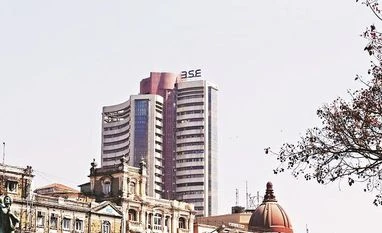The market breadth — the ratio for total number of stocks rising to total number of stocks falling — this year is the worst in six years, amid sluggish economic growth and disappointing corporate earnings.
In the first eight months of 2019, 70 per cent stocks in the BSE 500 universe were down. Stocks in the BSE 500 universe account for 94 per cent of India’s total market capitalisation.
Stocks had fallen the most in the first eight months of a calendar in 2013, when the US Federal Reserve had announced tapering of the bond-buying programme.
The weak market breadth this year is despite the returns for the benchmark Sensex and the Nifty holding in positive territory for the year. Also, the weakness in a large number of stocks comes on the back of poor performance in 2018. During the same period in 2018, 335 stocks in the BSE 500 universe declined.
Deteriorating global growth outlook, amid the US-China trade tussle, has kept the market participants on tenterhooks and forced investors to pull their money out of risky assets.
Domestically, the looming crisis in the non-banking financial companies sector, concerns about corporate debt and defaults, and lack of earnings growth have weighed on stock performance. Global factors, too, have weighed on sentiment.
In July, the International Monetary Fund (IMF) reduced its global growth outlook. The IMF said that the world economy would expand 3.2 per cent in 2019 — the lowest in 10 years.
Disappointment over lack of stimulus in the Budget to shore up the economy and surcharge on foreign portfolio investors further upset entities. Though the surcharge was removed on August 23, foreign investors continue to remain net sellers. From their June 2019 highs, the Sensex fell by 7.8 per cent.
The decline in the broader market has been sharper, with the BSE MidCap and BSE SmallCap indices declining 16.7 per cent and 23 per cent, respectively, from levels seen a year ago.
Experts say the disappointing corporate earnings have kept stock prices depressed.
“Earnings were subdued in the June quarter, with the Nifty earnings growth coming in at 5 per cent, compared to our expectations of 12 per cent growth. Instances of earnings downgrade increased with 90 companies seeing more than 3 per cent earnings cut for 2019-20 and only 30 firms seeing their earnings being upgraded,” said Gautam Duggad, head of research-institutional equities, Motilal Oswal Financial Services.
Further, market players said disruptions caused by regulator and technology changes have affected business models of a lot of companies, apart from the after-effects of demonetisation and the goods and services tax.
“Companies carrying a lot of debt on their books have seen issues on debt servicing due to economic slowdown and later faced credit rating downgrade. A combination of the above has led to poor market breadth,” said Deepak Jasani, head of retail research, HDFC Securities.
Investors’ preference towards select large-caps has also led to a fall in many stocks. Further, investors have punished firms that have posted disappointing earnings. Market players said the high valuation commanded by equities — despite correction — limits the possibility of a sustainable rebound in the market. On the contrary, the valuations make the market more vulnerable to a further downside if global sentiment worsens. Market players said the market breadth would not improve unless the government announces further proactive measures to revive demand and ease liquidity pressures in the market.
However, experts believe investors with risk appetite can use the weakness in the market as a buying opportunity.
“After a certain point, the valuations of a lot of these companies might become attractive, and they may see a bounce, especially if the economy also turns around. What is important for investors is not to get carried away but try to bottom-fish stocks after due diligence and accumulate them,” said Jasani.
Unlock 30+ premium stories daily hand-picked by our editors, across devices on browser and app.
Pick your 5 favourite companies, get a daily email with all news updates on them.
Full access to our intuitive epaper - clip, save, share articles from any device; newspaper archives from 2006.
Preferential invites to Business Standard events.
Curated newsletters on markets, personal finance, policy & politics, start-ups, technology, and more.
)